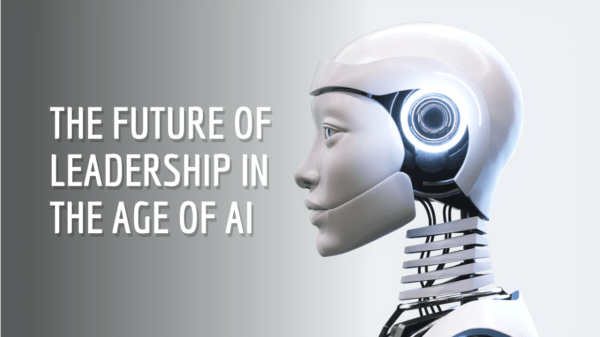Can Alzheimer’s be prevented? Reducing Your Risk
“The Secrets of a Sharp Mind: Can Alzheimer’s Be Prevented?”
Key Takeaways:
- Alzheimer’s affects memory and thinking, impacting individuals and society.
- Interest is growing in preventing Alzheimer’s by understanding risk factors.
- Genetics, age, gender, lifestyle, and environment all affect Alzheimer’s risk.
- Genes like APOE4 raise risk, and age is a significant factor.
- Women have higher Alzheimer’s rates; the reasons include hormones.
- Healthy habits like diet, exercise, socializing, and sleep lower the risk.
- A Mediterranean diet and antioxidants are beneficial for brain health.
- Exercise and mental activities strengthen the brain and delay symptoms.
- Mindfulness and stress reduction help counter Alzheimer’s risk.
- Cognitive reserve, built by learning, delays Alzheimer’s impact.
- Embracing brain-healthy habits supports overall well-being.
In the intricate tapestry of human health, few threads are as delicate and formidable as Alzheimer’s disease. This neurodegenerative force can slowly unravel cherished memories and cognitive abilities, leaving families and societies grappling with its profound impact. As the years unfold, the prevalence of Alzheimer’s casts a long shadow—a reminder of the fragility of the mind’s intricate labyrinth.
Yet, within this enigma, a surge of hope emerges—a growing interest, a fervent curiosity that whispers the possibility of prevention. As medical knowledge and research stride forward, the question gains resonance: Can Alzheimer’s be prevented? The landscape of understanding widens, the spectrum of strategies broadens, and with it comes the promise of reducing the risk of this formidable adversary.
In a world where advances in science continue to astonish and holistic well-being is a cherished pursuit, we find ourselves on the cusp of an exploration—a quest that delves into the very essence of Alzheimer’s, probing for avenues to shield ourselves from its grasp. From cognitive engagement to nurturing nutrition, from the symphony of social bonds to the sanctuary of mindfulness, we embark on a journey that unravels the intricacies of risk reduction.
Understanding Alzheimer’s Disease
In the intricate landscape of neurological disorders, Alzheimer’s disease stands out as one of the most intricate and formidable puzzles. Alzheimer’s disease casts a shadow that goes far beyond the person who is suffering from it because it causes a gradual decline in memory, cognitive abilities, and even personality. To embark on the journey of reducing its risk, we must first illuminate the contours of this intricate adversary.
Explanation of what Alzheimer’s Disease Is and Its Primary Characteristics
At its core, Alzheimer’s disease is a complex neurodegenerative disorder that affects brain function, particularly memory, thinking, and behavior. Named after Dr. Alois Alzheimer, who first described the condition in 1906, it represents a significant global health challenge. The disease is characterized by the accumulation of abnormal protein aggregates—beta-amyloid plaques and tau tangles—in the brain. These aggregates disrupt communication between nerve cells, leading to their gradual dysfunction and eventual demise.
Brief Overview of How the Disease Progresses and Affects Cognitive Functions
Alzheimer’s disease operates insidiously, often presenting mild and easily overlooked symptoms in its early stages. Initially, individuals may experience mild forgetfulness, such as misplacing keys or struggling to recall recent events. As the disease advances, memory lapses intensify, and individuals grapple with disorientation, difficulty finding words, and challenges in problem-solving. Simple tasks become arduous, and the intricate web of memories that shape an individual’s identity starts to fray.
As the disease progresses, cognitive functions continue to deteriorate. The ability to recognize loved ones fades, and language skills diminish. Behavioral changes, including mood swings, agitation, and withdrawal, become evident. The brain’s architecture becomes increasingly compromised, affecting not only memory and cognition but also fundamental bodily functions.
Understanding Alzheimer’s disease involves grasping not only the physiological changes it induces but also the profound emotional toll it exacts. The relentless march of this condition underscores the urgency of exploring avenues to mitigate its impact or even prevent its onset. As we navigate the labyrinthine pathways of Alzheimer’s, the pursuit of strategies to reduce its risk becomes an imperative mission—one that holds the promise of a future where memories remain intact and cognitive vitality endures.
Factors Contributing to Alzheimer’s Risk
In the intricate tapestry of human health, few threads are as delicate and formidable as Alzheimer’s disease. As we delve into the complex web of factors that contribute to the risk of developing this neurodegenerative ailment, we begin to unravel the intricate interplay of genetics, age, gender, and the choices we make.
Genetic Predisposition
In the realm of Alzheimer’s risk, genetics casts a significant shadow. The human genome holds clues that can either increase or lessen one’s vulnerability to this complex ailment. One of the spotlight genes in this regard is APOE, with its variant APOE4 being notably associated with heightened susceptibility. Those who carry a single copy of APOE4 are at an increased risk, while those with two copies face an even higher likelihood. APOE4 doesn’t guarantee the development of Alzheimer’s, but it certainly tilts the odds.
Beyond APOE, ongoing research continues to unveil a multitude of genetic factors that dance together to influence Alzheimer’s risk. Variants in genes related to inflammation, lipid metabolism, and cell processes are among those being scrutinized. This genetic complexity emphasizes the complex nature of Alzheimer’s, where a complex genetic roadmap guides the journey from predisposition to manifestation.
Age and Gender
As the pages of time turn, another factor emerges as a significant contributor to Alzheimer’s risk: age. Aging is an inescapable voyage, and with it comes an increased vulnerability to neurodegenerative disorders. The risk of Alzheimer’s doubles approximately every five years after the age of 65. While age is a universal risk factor, it doesn’t act alone; it intertwines with other contributors, creating a nuanced landscape of susceptibility.
Interestingly, the pages of gender also hold influence. Statistics reveal a higher prevalence of Alzheimer’s in women than in men. This gender disparity has spurred investigations into potential explanations. Hormonal differences, genetic predispositions, and variations in brain structure are all under the microscope as researchers strive to decipher why Alzheimer’s seems to have a more pronounced presence in the female population.
Lifestyle and Environmental Factors
In the journey toward understanding Alzheimer’s risk, lifestyle choices and environmental factors emerge as modifiable variables that can tip the scales. The adage “you are what you eat” takes on new resonance as research underscores the impact of diet on brain health. A diet rich in antioxidants, omega-3 fatty acids, and nutrients like vitamin E may confer protective benefits. On the flip side, diets high in saturated fats and processed sugars might increase vulnerability.
Physical activity, too, emerges as a formidable ally in the fight against Alzheimer’s. Regular exercise not only bolsters cardiovascular health but also promotes the growth of new brain cells and strengthens neural connections. The brain, it seems, thrives on movement.
While our choices are pivotal, the environment we inhabit also plays a role. Air quality, exposure to toxins, and other environmental factors can contribute to the risk of Alzheimer’s. Studies suggest that long-term exposure to air pollutants might accelerate cognitive decline. The intricate interplay between our surroundings and our susceptibility to Alzheimer’s further underscores the complexity of the disease’s origins.
Promising Strategies for Reducing Alzheimer’s Risk
A crucial question arises in the quest for a life full of vitality and cognitive health: Can we build a wall of defense against Alzheimer’s disease’s powerful grip? As the quest for answers continues, a constellation of strategies beckons, each holding the promise of reducing the risk of this intricate adversary. Let us venture into the realms of cognitive engagement, dietary fortitude, physical vitality, vibrant social bonds, and the restorative embrace of sleep—a symphony of efforts that may pave the way toward a future where Alzheimer’s risk is subdued.
Cognitive Engagement
The human brain is a marvel of adaptability, capable of forging new connections and pathways even as the years advance. In this intricate dance, cognitive engagement emerges as a powerful partner. Engaging in intellectually stimulating activities—be it learning a new language, mastering an instrument, or embracing the art of problem-solving—exercises the mind, nurturing its resilience. Just as physical exercise strengthens muscles, mental stimulation enhances neural networks. Studies suggest that such engagement not only preserves cognitive function but may also delay the onset of Alzheimer’s symptoms. The mind, it seems, thrives on novelty and the art of perpetual learning.
Healthy Diet and Nutrition
The sustenance we offer our bodies goes far beyond mere physical health. A diet brimming with brain-nourishing nutrients emerges as a cornerstone for reducing Alzheimer’s risk. Antioxidants, those formidable guardians against oxidative stress, find their place in fruits and vegetables, working to protect brain cells from damage. Omega-3 fatty acids, found in fatty fish and flaxseeds, play a pivotal role in maintaining the integrity of brain cell membranes.
Among the dietary gems, the Mediterranean diet shines brightly. Rich in vegetables, fruits, whole grains, lean proteins, and healthy fats, this dietary pattern is linked to reduced inflammation and enhanced brain health. With its emphasis on vibrant colors and wholesome flavors, the Mediterranean diet offers more than sustenance—it offers a culinary symphony that may harmonize with cognitive well-being.
Regular Physical Activity
The rhythmic pulse of life intertwines seamlessly with the vigor of movement. Regular physical activity, it turns out, isn’t merely a balm for the body—it’s a boon for the brain. Exercise sparks the release of neurotrophic factors—molecules that nurture the growth of new neurons and strengthen connections between existing ones. Whether it’s a brisk walk, a yoga session, or the exhilaration of dancing, the benefits are abundant. Aerobic exercise improves blood flow, strength training fosters resilience, and even the gentle practice of tai chi can enhance cognitive function. As we move, so too does our cognitive vitality flourish.
Social Interaction
In the tapestry of human experience, social bonds weave a thread of profound significance. Maintaining strong social connections isn’t solely a matter of emotional well-being—it’s a safeguard for cognitive health. Engaging in meaningful interactions, be it with family, friends, or the community, stimulates the brain, fostering the growth of neural connections. Social engagement challenges the mind, demanding the interpretation of subtle cues, the navigation of nuanced conversations, and the cultivation of empathy. As we engage with others, our brains remain agile, responsive, and vibrant.
Quality Sleep
In the realm of rejuvenation, sleep reigns supreme. As we slumber, the brain engages in a symphony of restorative processes—consolidating memories, clearing away metabolic debris, and rejuvenating neural networks. Quality sleep is essential for cognitive function, and its absence can increase vulnerability to Alzheimer’s disease. Establishing a healthy sleep routine, ensuring a comfortable sleep environment, and practicing relaxation techniques can foster the depth of sleep required for optimal brain health.
Mindfulness and Stress Reduction
Amid the cacophony of modern life, where demands and distractions abound, stress can become an unrelenting companion. Its insidious effects ripple through the intricate network of the brain, potentially heightening the risk of Alzheimer’s disease. The physiological response to chronic stress—increased levels of cortisol and inflammation—can have a detrimental impact on brain health, fostering an environment conducive to cognitive decline.
Enter mindfulness, a practice that beckons us to dwell in the present moment with clarity and acceptance. It offers a sanctuary where the mind can unburden itself from the weight of worry and anxiety. Mindfulness-based stress reduction techniques provide a toolkit to navigate life’s challenges with equanimity. Meditation, with its quieting influence on the mind’s chatter, and yoga, with their marriage of movement and breath, become instruments of serenity. By weaving mindfulness into our daily tapestry, we foster a mental haven that guards against stress’s corrosive touch, potentially lowering the risk of Alzheimer’s and nurturing cognitive well-being.
Challenging the Brain
As we delve into the realm of cognitive resilience, the concept of cognitive reserve emerges—a concept akin to a mental savings account. This reserve, a product of life’s experiences and intellectual engagements, empowers the brain to weather the storms of aging and disease. The more varied and robust our cognitive engagements are, the more resilient our brains become in the face of challenges like Alzheimer’s.
Imagine learning a new language, mastering a musical instrument, or diving into the intricate art of chess—each endeavor nurtures the cognitive reserve. These activities stimulate the growth of new neurons and synapses, forming a cognitive scaffolding that can potentially delay the onset of Alzheimer’s symptoms. In the orchestration of cognitive challenges, our minds remain agile, capable of adapting and evolving even as the years advance.
Conclusion
In the tapestry of human existence, the question of Alzheimer’s prevention resonates as a profound quest—an exploration that intersects science, lifestyle, and the boundless capacities of the human spirit. While an absolute shield against Alzheimer’s may remain elusive, the power of our choices shines with luminous hope.
With mindfulness, we cultivate a sanctuary where stress finds no purchase, nurturing brain health and resilience. Through the pursuit of cognitive engagement, we build a fortress of cognitive reserve capable of withstanding the erosive passage of time.
As we stand at the crossroads of understanding and action, a symphony of efforts emerges—a tapestry woven with threads of nutrition, movement, connection, mental agility, and serenity. The journey to reduce Alzheimer’s risk is a testament to the human spirit’s audacious endeavor—a commitment to preserving the vibrant fabric of memory and cognitive vitality.

















































